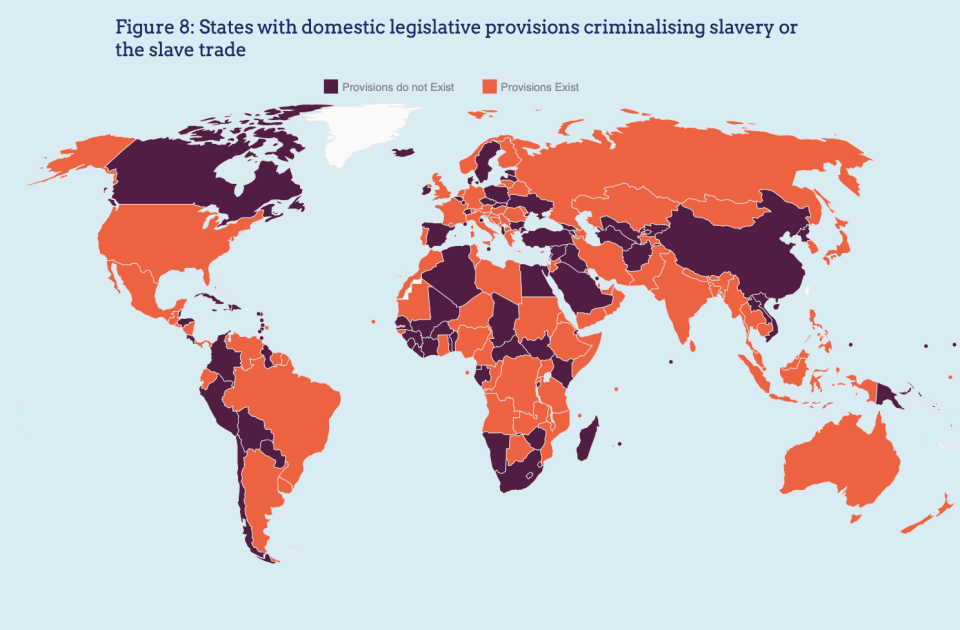The 94 countries where slavery is not illegal

Contrary to what you might think, human slavery is actually not illegal in half of all countries in the world, a new report has revealed.
The Antislavery in Domestic Legislation database found that while legal ownership of people was abolished in every country, you can’t be prosecuted and punished in a criminal court for enslaving another person in 94 countries (49 per cent).

According to the map, provisions criminalising slavery or the slave trade don’t exist in, among other countries: Canada, Peru, Chile, South Africa, Madagascar, China and Spain.
“It will surprise many people to learn that in all of these countries there are no criminal laws in place to prosecute, convict and punish people for subjecting people to the most extreme forms of exploitation,” University of Nottingham lab associate director, Katarina Schwarz said.
“Abuses in these cases can only be prosecuted indirectly through other offences — such as human trafficking — if they are prosecuted at all. In short, slavery is far from being illegal everywhere and we hope our research will move the conversation beyond this popular myth.”
Schwarz suggested the reason some countries didn’t pass laws to prohibit slavery is because all states had already repealed laws allowing for property rights in persons.
“The effective consensus was that slavery had been legislated out of existence,” Schwarz said.
“So, in many countries the thinking went; if slavery could no longer exist, there was no reason to pass laws to prohibit it.”
But since international courts have affirmed that the definition of slavery includes situations where the powers associated with ownership are exercised over a person, countries need to catch up.
“Combined with international laws explicitly requiring criminal laws against slavery and other exploitative practices, this new understanding of slavery means that it is not enough for countries just to abolish laws allowing slavery,” Schwarz said.
“States must proactively prohibit these practices through their criminal laws.”
Make your money work with Yahoo Finance’s daily newsletter. Sign up here and stay on top of the latest money, news and tech news.
Follow Yahoo Finance Australia on Facebook, Twitter, Instagram and LinkedIn.

 Yahoo Finance
Yahoo Finance 